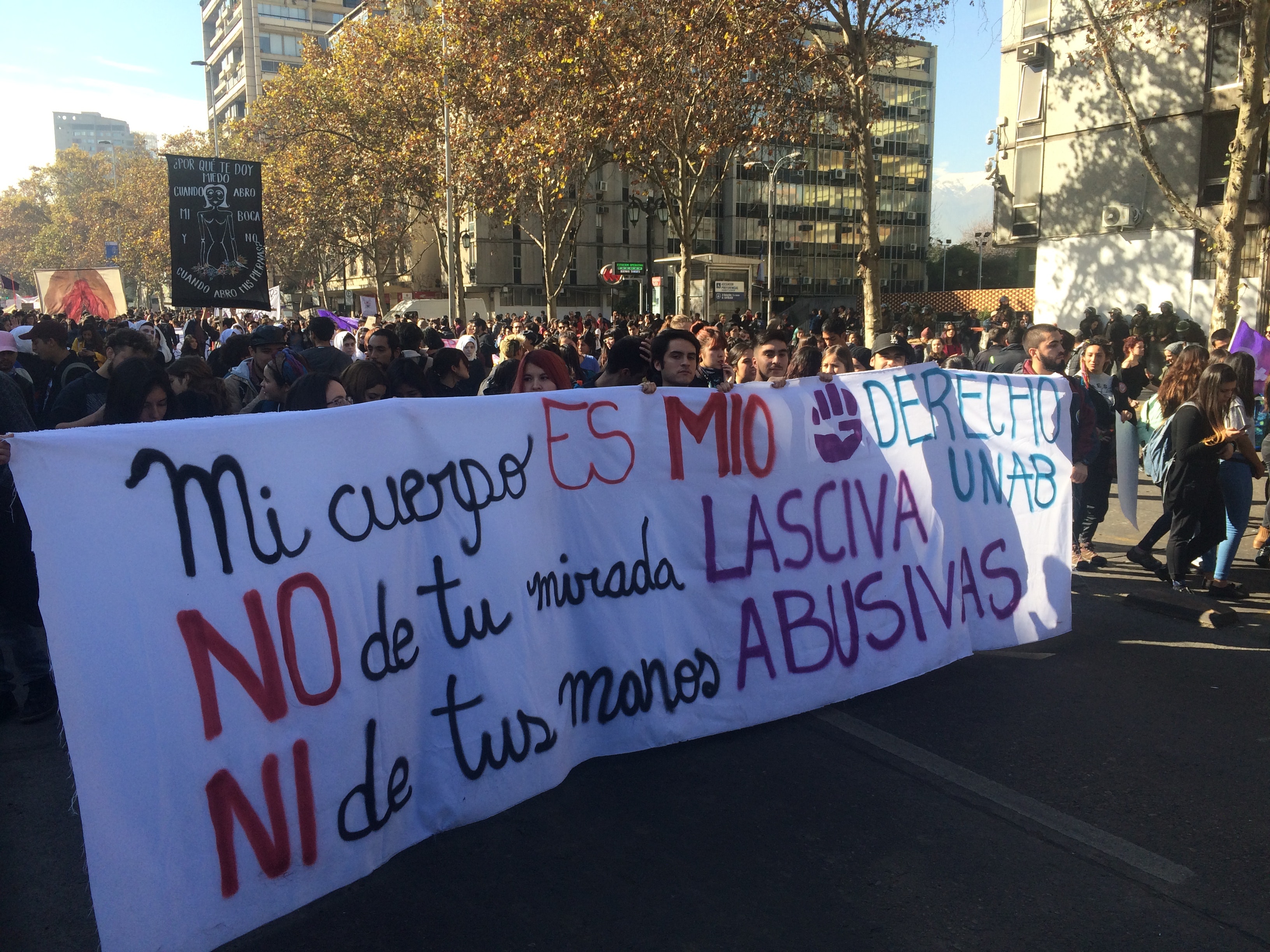Guapa! Que Pasa? Street Harassment And Gender Inequality In Barcelona

Content Warning: This article contains first-hand experience of physical sexual harassment.
by Tilly Brogan
I’d like to start by saying that I hadn’t planned to write about street harassment this month, but something happened to me a few weeks back that I felt I needed to address. About three weeks ago I was not just verbally harassed, but physically harassed in the street.
It was just after 2am and I was walking to my metro stop after meeting with a friend in the evening. Yes, I’ll admit that perhaps I shouldn’t have been walking through the city alone at this time but by no means does that excuse what happened to me that night. If you’ve already been to Barcelona you’ll known that the old town, or Gothic Quarter, is essentially a maze of thin and winding streets. The neighbourhood is also known for the men who sell cans of beer on its street corners. I was walking down one of the slightly wider streets avoiding any and all eye contact with the men who usually harass the women that walk past them; stationary sellers watching the world - and the women - go by. I was so focused on keeping my head down that I didn’t see the two men walk out of an alleyway and follow me down the road.
All of a sudden I felt hands on my back and warm breath in my ear as one of the men hissed guapa and rubia while his friend tried to push me down one of the adjoining streets. The only other people in the street were the beer sellers lurking in the shadows. I was essentially alone. I guess fight or flight mode kicked in because suddenly I was elbowing the man on my right and running down the street until at last I could see the familiar lights of the metro station. I couldn’t stop shaking the rest of my journey home.
I’d like to say that what happened that night was an isolated incident, but I can’t; many of my friends here also have stories of their own. Hannah was walking through the city centre in the early hours of the evening when a man stopped her and asked if she was English. Assuming he was asking for directions she answered him. He then asked if he could take her out for a drink. She said no. The man then proceeded to follow her, walking ever so slightly behind her until she became so frightened that she hid from the man in the shadows of a street corner. After realising that he had lost her, Hannah saw the man laughing and high-fiving a friend that had just emerged from the other side of the street. They had been tag teaming her.
In my first piece for the journal, I wrote about the derogative term ‘rubita’ and it’s use in verbal street harassment in Spain. Many people associate the excessive catcalling in Barcelona with the large number of foreigners in the city. Even the English girls understand that we are known for our sexual provocation and promiscuity. But this isn’t about some fetish for exotic women.
Spain lags behind the UK in terms of gender equality. We often forget that Spain didn’t become a democracy until 1978; the Franco dictatorship halted any progression towards gender equality to such an effect that the detrimental backlash is still being felt today. During Franco’s years, women’s societal position was equivalent to that of a child. In 1933, Spain finally granted women the right to vote. Yet when Franco’s dictatorship began just three years later, this right was quickly revoked. The dictatorship restricted women in their professional careers and in their sexual conduct, honouring instead their roles solely as wives and mothers. Divorce, contraception, and abortion were made illegal. Prostitution was permitted.
The Franco Regime ended in 1975 and the country has been struggling to catch up since. It feels like everything in Spain is a step behind regarding gender equality. It was not until 1987, for example, that Spain’s Supreme Court changed a law that stated a rape victim had to show she had put up ‘heroic resistance’ during her attack. Without this, the court could not prove she had not enticed the rapist or otherwise encouraged him to attack her.
So is Spain’s history of gender inequality the reason why street harassment is still considered acceptable here in Barcelona? Is the treatment of women as second-class citizens more conceivable as an idea than one where women have the same rights as their male counterparts? From what I have experienced here, I would suggest most definitely.
It seems that the feminist movement in Spain is still seen as something radical, whereas I would argue that in the UK we have fully accepted feminism as part of the 21st century fight for gender equality. Even my grandad admits that he’s a feminist - yet I fear many here (even those my age) would turn their noses up at such a word. I’m beginning to worry for the women in the country that I now call my home, scared that their country’s past is restricting their lives in the present. I fear that Franco’s ghost is still haunting the women of Spain even today, in the 13% - 19% difference in women’s to men’s wages, in the macho culture seamlessly ingrained in Spanish society, and in the day-to-day street harassment that us women are finding impossible to escape from.
